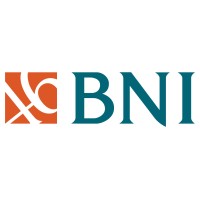Company Details
bank-of-the-west
5,232
75,398
52211
www.bmo.com
0
BAN_2402391
In-progress

Bank of the West Company CyberSecurity Posture
www.bmo.comWe’ve joined the BMO Family. Please note that we’re no longer monitoring or responding to comments. Reach out to https://www.linkedin.com/company/bmo-us/ with any questions. Follow BMO US: https://www.linkedin.com/company/bmo-us/ ©2023 Bank of the West is a trade name used by BMO Harris Bank N.A. Banking products and services are subject to approval and are provided by BMO Harris Bank N.A. Member FDIC. Bank of the West is not affiliated with BNP Paribas.
Company Details
bank-of-the-west
5,232
75,398
52211
www.bmo.com
0
BAN_2402391
In-progress
Between 700 and 749

 BW Global Score (TPRM)
BW Global Score (TPRM)XXXX

Description: The California Office of the Attorney General reported a data breach involving Bank of the West on July 16, 2014. The breach was related to an email scam that compromised the login credentials of two employees, potentially exposing customer names and Social Security Numbers, though no evidence of actual viewing or theft was confirmed.
Description: The California Office of the Attorney General reported that Bank of the West experienced a data breach involving ATM skimming devices discovered on April 9, 2017. The breach potentially exposed debit card numbers and PINs as a result of fraudulent activities affecting customers in Southern California. It is estimated that the unauthorized devices were in place from February 1, 2017, to April 9, 2017.
Description: The California Office of the Attorney General reported a data breach involving Bank of the West on April 5, 2019. The breach occurred due to the installation of an ATM skimming device at the Campbell Branch ATM between December 3, 2018, and December 22, 2018, potentially compromising debit card information such as card numbers and PINs for an unspecified number of individuals.
Description: The California Office of the Attorney General reported a data breach involving Bank of the West on February 5, 2014. The breach, discovered on December 19, 2013, involved unauthorized access to a retired internet application for job listings and applications, potentially exposing user names, passwords, and personal information such as names, addresses, social security numbers, and driver's license numbers. The number of affected individuals is currently unknown.
Description: On August 20, 2018, the California Office of the Attorney General reported a data breach involving Bank of the West that occurred on March 2, 2018. Unauthorized third parties accessed employee email accounts at a contracted service provider, potentially affecting personal information including business names and Social Security numbers linked to businesses. The number of affected individuals is unknown.
Description: The California Office of the Attorney General disclosed a **data breach** at **Bank of the West** on **June 23, 2022**, stemming from an **ATM skimming incident** detected between **November 10, 2021, and April 18, 2022**. The breach involved unauthorized access to **card numbers, PINs, and personal information** of customers using compromised ATMs. While the exact number of affected individuals remains undisclosed, the incident exposed sensitive financial and personal data, posing risks of **fraudulent transactions, identity theft, and unauthorized account access**.The breach was likely executed through **physical tampering of ATMs**—a common tactic where criminals install skimming devices to capture card details and PINs. Although no explicit mention of large-scale financial losses or systemic disruptions was reported, the exposure of **payment card data and personal identifiers** suggests a direct threat to customers' financial security and privacy. The prolonged detection window (over **five months**) further exacerbates the potential for misuse of the stolen data before mitigation measures were implemented.This incident underscores vulnerabilities in **physical and digital payment infrastructure**, highlighting the need for enhanced monitoring, customer notifications, and fraud prevention protocols to mitigate post-breach risks.


No incidents recorded for Bank of the West in 2025.
No incidents recorded for Bank of the West in 2025.
No incidents recorded for Bank of the West in 2025.
BW cyber incidents detection timeline including parent company and subsidiaries

We’ve joined the BMO Family. Please note that we’re no longer monitoring or responding to comments. Reach out to https://www.linkedin.com/company/bmo-us/ with any questions. Follow BMO US: https://www.linkedin.com/company/bmo-us/ ©2023 Bank of the West is a trade name used by BMO Harris Bank N.A. Banking products and services are subject to approval and are provided by BMO Harris Bank N.A. Member FDIC. Bank of the West is not affiliated with BNP Paribas.


Bank Rakyat Indonesia (BRI) adalah salah satu bank milik pemerintah yang terbesar di Indonesia. BRI didirikan di Purwokerto, Jawa Tengah oleh Raden Bei Aria Wirjaatmadja pada 16 Desember 1895. Lebih dari 128 tahun memberi pelayanan terbaik bagi seluruh lapisan masyarakat, BRI turut andil dalam upa

Since its establishment in 1946, BNI has been part of the dynamic of national development in Indonesia. Now BNI has grown and developed into a solid national bank with a sustainable financial performance. ‘Serving the Country, Pride of the Nation”, BNI continues to increase its contribution for the

The Toronto-Dominion Bank & its subsidiaries are collectively known as TD Bank Group (TD). TD is the sixth largest bank in North America by assets & serves approx. 28 million customers in a number of locations in key financial centres around the globe. With over 95,000 employees, TD ranks among the

Welcome to the official LinkedIn page of Central Bank of India. Central Bank of India offers a wide range of products and services for every segment. Please join us to know more about our best products & services, attractive offers and the latest updates. We invite & value your active participatio

We are a leading international banking group, with a presence in 54 of the world’s most dynamic markets. Our purpose is to drive commerce and prosperity through our unique diversity, and our heritage and values are expressed in our brand promise, here for good. If you’re interested joining Standar
Somos una Corporación líder y comprometida con el país que brinda servicios financieros de excelencia a cada segmento de clientes. Buscamos permanentemente ser el mejor Banco para ellos, ser el mejor lugar para trabajar y ser la mejor inversión para nuestros accionistas. Lo hacemos de forma colabora

For over 200 years, BNP Paribas Fortis has helped drive the growth and prosperity of Belgium’s economy and communities. The mission of our 12,000 colleagues is clear: be the trusted financial partner for four million individual customers, businesses and organisations. We do this by offering advice a
Intesa Sanpaolo è il maggior gruppo bancario in Italia con una significativa presenza internazionale. Il suo business model distintivo la rende leader a livello europeo nel Wealth Management, Protection & Advisory e ne caratterizza l’orientamento al digitale. I’impegno in ambito ESG prevede, entro i

Russian Standard Bank - leading private bank in the lending market. Bank sells credit programs in more than 1,200 locations across the country. Number of clients of the bank exceeded 23 millions, the total amount of consumer loans exceeded $30 billions. The number of trading partners of the Bank
.png)
Hacker's Movie Guide” with Foreword by Steve Wozniak, co-founder of Apple.
Our commitment to audit quality. At EY US, we are bringing our bold vision for the future of audit to life with quality at the center,...
Using AI to create fake identities, they get remote jobs, then hide in plain sight—in Slack, on Zooms, and in corporate infrastructure.
Unlock the potential of open banking solutions with Mastercard Open Finance, paving the way for seamless financial innovation.
Township officials said they were alerted that a "malicious hacking group" appeared to have targeted their central email server.
Jen Easterly, the former director of the Cybersecurity and Infrastructure Security Agency, on Thursday pointed to “manufactured outrage” as...
The Secretary of the Army has directed the U.S. Military Academy at West Point to review its hiring practices and rescind the appointment of...
Police believe a former Western Sydney University student allegedly escalated from hacking into the uni's servers for free parking to...
Multiple leading cybersecurity firms on Monday reported surges in threats to US organizations linked to Iranian hackers after the US struck Iranian nuclear...

Explore insights on cybersecurity incidents, risk posture, and Rankiteo's assessments.
The official website of Bank of the West is www.bmo.com.
According to Rankiteo, Bank of the West’s AI-generated cybersecurity score is 704, reflecting their Moderate security posture.
According to Rankiteo, Bank of the West currently holds 0 security badges, indicating that no recognized compliance certifications are currently verified for the organization.
According to Rankiteo, Bank of the West is not certified under SOC 2 Type 1.
According to Rankiteo, Bank of the West does not hold a SOC 2 Type 2 certification.
According to Rankiteo, Bank of the West is not listed as GDPR compliant.
According to Rankiteo, Bank of the West does not currently maintain PCI DSS compliance.
According to Rankiteo, Bank of the West is not compliant with HIPAA regulations.
According to Rankiteo,Bank of the West is not certified under ISO 27001, indicating the absence of a formally recognized information security management framework.
Bank of the West operates primarily in the Banking industry.
Bank of the West employs approximately 5,232 people worldwide.
Bank of the West presently has no subsidiaries across any sectors.
Bank of the West’s official LinkedIn profile has approximately 75,398 followers.
Bank of the West is classified under the NAICS code 52211, which corresponds to Commercial Banking.
No, Bank of the West does not have a profile on Crunchbase.
Yes, Bank of the West maintains an official LinkedIn profile, which is actively utilized for branding and talent engagement, which can be accessed here: https://www.linkedin.com/company/bank-of-the-west.
As of November 27, 2025, Rankiteo reports that Bank of the West has experienced 6 cybersecurity incidents.
Bank of the West has an estimated 6,716 peer or competitor companies worldwide.
Incident Types: The types of cybersecurity incidents that have occurred include Breach.
Detection and Response: The company detects and responds to cybersecurity incidents through an communication strategy with public disclosure via california office of the attorney general..
Title: Bank of the West Data Breach
Description: Unauthorized access to a retired internet application for job listings and applications, potentially exposing user names, passwords, and personal information such as names, addresses, social security numbers, and driver's license numbers.
Date Detected: 2013-12-19
Date Publicly Disclosed: 2014-02-05
Type: Data Breach
Attack Vector: Unauthorized Access
Vulnerability Exploited: Retired Internet Application
Title: Bank of the West ATM Skimming Data Breach
Description: The California Office of the Attorney General reported that Bank of the West experienced a data breach involving ATM skimming devices discovered on April 9, 2017. The breach potentially exposed debit card numbers and PINs as a result of fraudulent activities affecting customers in Southern California. It is estimated that the unauthorized devices were in place from February 1, 2017, to April 9, 2017.
Date Detected: 2017-04-09
Type: Data Breach
Attack Vector: ATM Skimming
Vulnerability Exploited: Physical Security
Motivation: Financial Gain
Title: Bank of the West Data Breach
Description: The California Office of the Attorney General reported a data breach involving Bank of the West on July 16, 2014. The breach was related to an email scam that compromised the login credentials of two employees, potentially exposing customer names and Social Security Numbers, though no evidence of actual viewing or theft was confirmed.
Date Detected: 2014-07-16
Date Publicly Disclosed: 2014-07-16
Type: Data Breach
Attack Vector: Email Scam
Vulnerability Exploited: Compromised Login Credentials
Title: Bank of the West Data Breach
Description: Unauthorized third parties accessed employee email accounts at a contracted service provider, potentially affecting personal information including business names and Social Security numbers linked to businesses.
Date Detected: 2018-03-02
Date Publicly Disclosed: 2018-08-20
Type: Data Breach
Attack Vector: Email Account Compromise
Threat Actor: Unauthorized third parties
Title: Bank of the West ATM Skimming Incident
Description: The California Office of the Attorney General reported a data breach involving Bank of the West on April 5, 2019. The breach occurred due to the installation of an ATM skimming device at the Campbell Branch ATM between December 3, 2018, and December 22, 2018, potentially compromising debit card information such as card numbers and PINs for an unspecified number of individuals.
Date Detected: 2019-04-05
Date Publicly Disclosed: 2019-04-05
Type: Data Breach
Attack Vector: ATM Skimming
Vulnerability Exploited: Physical Security
Motivation: Financial Gain
Title: Bank of the West ATM Skimming Incident
Description: The California Office of the Attorney General reported a data breach involving Bank of the West on June 23, 2022. The breach involved an ATM skimming incident discovered between November 10, 2021, and April 18, 2022, potentially compromising card numbers, PINs, and personal information of affected individuals, but the total number of individuals affected is unknown.
Date Detected: 2022-04-18
Date Publicly Disclosed: 2022-06-23
Type: Data Breach (ATM Skimming)
Attack Vector: Physical ATM Skimming Device
Motivation: Financial Gain (Likely)
Common Attack Types: The most common types of attacks the company has faced is Breach.
Identification of Attack Vectors: The company identifies the attack vectors used in incidents through ATM Machines, Email Scam, Email Account Compromise, ATM Skimming Device and Physical ATM Tampering.

Data Compromised: User names, Passwords, Names, Addresses, Social security numbers, Driver's license numbers
Systems Affected: Retired Internet Application for Job Listings and Applications

Data Compromised: Debit card numbers, Pins
Systems Affected: ATM Machines
Payment Information Risk: High

Data Compromised: Customer names, Social security numbers

Data Compromised: Business names, Social security numbers

Data Compromised: Debit card numbers, Pins
Systems Affected: ATM
Payment Information Risk: High

Data Compromised: Card numbers, Pins, Personal information
Systems Affected: ATMs
Brand Reputation Impact: Potential Negative Impact (Undisclosed)
Identity Theft Risk: High (Potential)
Payment Information Risk: High (Card Numbers and PINs Compromised)
Commonly Compromised Data Types: The types of data most commonly compromised in incidents are User Names, Passwords, Names, Addresses, Social Security Numbers, Driver'S License Numbers, , Debit Card Numbers, Pins, , Customer Names, Social Security Numbers, , Business Names, Social Security Numbers, , Debit Card Numbers, Pins, , Card Numbers, Pins, Personal Information and .

Entity Name: Bank of the West
Entity Type: Financial Institution
Industry: Banking

Entity Name: Bank of the West
Entity Type: Financial Institution
Industry: Banking
Location: Southern California

Entity Name: Bank of the West
Entity Type: Financial Institution
Industry: Banking
Location: California

Entity Name: Bank of the West
Entity Type: Financial Institution
Industry: Banking

Entity Name: Bank of the West
Entity Type: Financial Institution
Industry: Banking
Location: Campbell Branch

Entity Name: Bank of the West
Entity Type: Financial Institution
Industry: Banking
Location: California, USA
Customers Affected: Unknown

Communication Strategy: Public Disclosure via California Office of the Attorney General

Type of Data Compromised: User names, Passwords, Names, Addresses, Social security numbers, Driver's license numbers
Sensitivity of Data: High
Personally Identifiable Information: NamesAddressesSocial Security NumbersDriver's License Numbers

Type of Data Compromised: Debit card numbers, Pins
Sensitivity of Data: High

Type of Data Compromised: Customer names, Social security numbers
Sensitivity of Data: High

Type of Data Compromised: Business names, Social security numbers
Sensitivity of Data: High

Type of Data Compromised: Debit card numbers, Pins
Sensitivity of Data: High

Type of Data Compromised: Card numbers, Pins, Personal information
Number of Records Exposed: Unknown
Sensitivity of Data: High
Data Exfiltration: Likely (via Skimming Device)
Personally Identifiable Information: Yes

Regulatory Notifications: California Office of the Attorney General

Source: California Office of the Attorney General
Date Accessed: 2014-02-05

Source: California Office of the Attorney General

Source: California Office of the Attorney General
Date Accessed: 2014-07-16

Source: California Office of the Attorney General
Date Accessed: 2018-08-20

Source: California Office of the Attorney General
Date Accessed: 2019-04-05

Source: California Office of the Attorney General
Date Accessed: 2022-06-23
Additional Resources: Stakeholders can find additional resources on cybersecurity best practices at and Source: California Office of the Attorney GeneralDate Accessed: 2014-02-05, and Source: California Office of the Attorney General, and Source: California Office of the Attorney GeneralDate Accessed: 2014-07-16, and Source: California Office of the Attorney GeneralDate Accessed: 2018-08-20, and Source: California Office of the Attorney GeneralDate Accessed: 2019-04-05, and Source: California Office of the Attorney GeneralDate Accessed: 2022-06-23.

Investigation Status: Disclosed; Details Limited
Communication of Investigation Status: The company communicates the status of incident investigations to stakeholders through Public Disclosure via California Office of the Attorney General.

Entry Point: ATM Machines

Entry Point: Email Scam

Entry Point: Email Account Compromise

Entry Point: ATM Skimming Device

Entry Point: Physical ATM Tampering
High Value Targets: Customer Payment Data
Data Sold on Dark Web: Customer Payment Data

Root Causes: Compromised Login Credentials

Root Causes: Installation of ATM skimming device

Root Causes: Likely Physical Security Lapse at ATMs
Last Attacking Group: The attacking group in the last incident was an Unauthorized third parties.
Most Recent Incident Detected: The most recent incident detected was on 2013-12-19.
Most Recent Incident Publicly Disclosed: The most recent incident publicly disclosed was on 2022-06-23.
Most Significant Data Compromised: The most significant data compromised in an incident were User names, Passwords, Names, Addresses, Social Security Numbers, Driver's License Numbers, , Debit Card Numbers, PINs, , Customer Names, Social Security Numbers, , Business names, Social Security numbers, , Debit card numbers, PINs, , Card Numbers, PINs, Personal Information and .
Most Significant System Affected: The most significant system affected in an incident was Retired Internet Application for Job Listings and Applications and ATM Machines and ATM and ATMs.
Most Sensitive Data Compromised: The most sensitive data compromised in a breach were Addresses, User names, Social Security numbers, Customer Names, Names, Driver's License Numbers, Business names, Personal Information, Card Numbers, Passwords, PINs, Debit Card Numbers, Debit card numbers and Social Security Numbers.
Number of Records Exposed in Most Significant Breach: The number of records exposed in the most significant breach was 0.
Most Recent Source: The most recent source of information about an incident is California Office of the Attorney General.
Current Status of Most Recent Investigation: The current status of the most recent investigation is Disclosed; Details Limited.
Most Recent Entry Point: The most recent entry point used by an initial access broker were an ATM Skimming Device, Email Account Compromise, Physical ATM Tampering, Email Scam and ATM Machines.
Most Significant Root Cause: The most significant root cause identified in post-incident analysis was Compromised Login Credentials, Installation of ATM skimming device, Likely Physical Security Lapse at ATMs.
.png)
Angular is a development platform for building mobile and desktop web applications using TypeScript/JavaScript and other languages. Prior to versions 19.2.16, 20.3.14, and 21.0.1, there is a XSRF token leakage via protocol-relative URLs in angular HTTP clients. The vulnerability is a Credential Leak by App Logic that leads to the unauthorized disclosure of the Cross-Site Request Forgery (XSRF) token to an attacker-controlled domain. Angular's HttpClient has a built-in XSRF protection mechanism that works by checking if a request URL starts with a protocol (http:// or https://) to determine if it is cross-origin. If the URL starts with protocol-relative URL (//), it is incorrectly treated as a same-origin request, and the XSRF token is automatically added to the X-XSRF-TOKEN header. This issue has been patched in versions 19.2.16, 20.3.14, and 21.0.1. A workaround for this issue involves avoiding using protocol-relative URLs (URLs starting with //) in HttpClient requests. All backend communication URLs should be hardcoded as relative paths (starting with a single /) or fully qualified, trusted absolute URLs.
Forge (also called `node-forge`) is a native implementation of Transport Layer Security in JavaScript. An Uncontrolled Recursion vulnerability in node-forge versions 1.3.1 and below enables remote, unauthenticated attackers to craft deep ASN.1 structures that trigger unbounded recursive parsing. This leads to a Denial-of-Service (DoS) via stack exhaustion when parsing untrusted DER inputs. This issue has been patched in version 1.3.2.
Forge (also called `node-forge`) is a native implementation of Transport Layer Security in JavaScript. An Integer Overflow vulnerability in node-forge versions 1.3.1 and below enables remote, unauthenticated attackers to craft ASN.1 structures containing OIDs with oversized arcs. These arcs may be decoded as smaller, trusted OIDs due to 32-bit bitwise truncation, enabling the bypass of downstream OID-based security decisions. This issue has been patched in version 1.3.2.
Suricata is a network IDS, IPS and NSM engine developed by the OISF (Open Information Security Foundation) and the Suricata community. Prior to versions 7.0.13 and 8.0.2, working with large buffers in Lua scripts can lead to a stack overflow. Users of Lua rules and output scripts may be affected when working with large buffers. This includes a rule passing a large buffer to a Lua script. This issue has been patched in versions 7.0.13 and 8.0.2. A workaround for this issue involves disabling Lua rules and output scripts, or making sure limits, such as stream.depth.reassembly and HTTP response body limits (response-body-limit), are set to less than half the stack size.
Suricata is a network IDS, IPS and NSM engine developed by the OISF (Open Information Security Foundation) and the Suricata community. In versions from 8.0.0 to before 8.0.2, a NULL dereference can occur when the entropy keyword is used in conjunction with base64_data. This issue has been patched in version 8.0.2. A workaround involves disabling rules that use entropy in conjunction with base64_data.

Get company history
















Every week, Rankiteo analyzes billions of signals to give organizations a sharper, faster view of emerging risks. With deeper, more actionable intelligence at their fingertips, security teams can outpace threat actors, respond instantly to Zero-Day attacks, and dramatically shrink their risk exposure window.
Identify exposed access points, detect misconfigured SSL certificates, and uncover vulnerabilities across the network infrastructure.
Gain visibility into the software components used within an organization to detect vulnerabilities, manage risk, and ensure supply chain security.
Monitor and manage all IT assets and their configurations to ensure accurate, real-time visibility across the company's technology environment.
Leverage real-time insights on active threats, malware campaigns, and emerging vulnerabilities to proactively defend against evolving cyberattacks.




